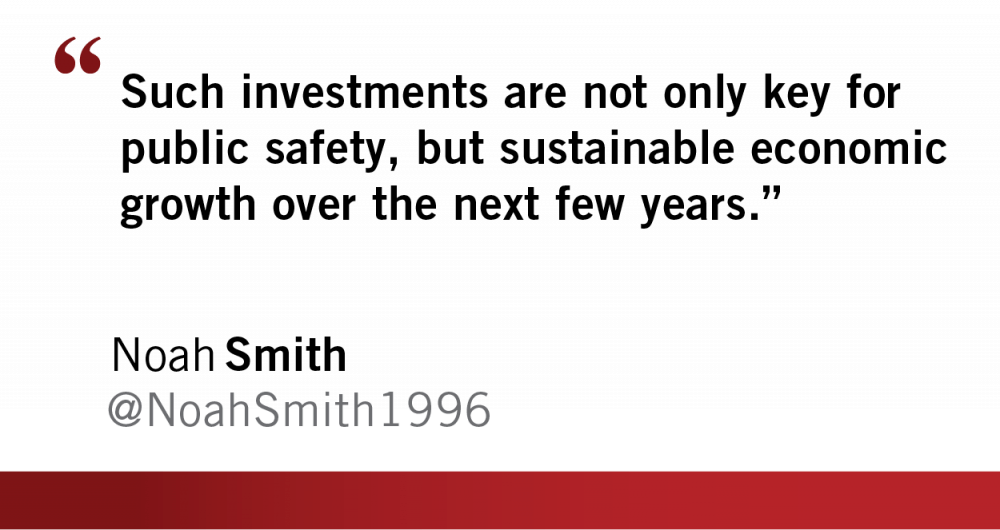Oh, how the mighty have fallen. A long time ago, (in a galaxy far, far away) the U.S. represented what was considered the shining, technological future. In the '50s and '60s, the most modern cities, the largest airports and the fastest cars dominated the landscape built on the back of FDR’s New Deal.
Now infrastructure in the U.S. is falling to pieces as decaying ports, airports, bridges, railways and power grids lead to estimates that this country could need as much as $2 trillion in immediate investments just to bring its infrastructure to an acceptable, stable level. This represents a great threat to the safety not only of the American public, but to the U.S. economy as a whole.
While inflation and a continuing wage gap have been primarily responsible for the economy failing to fully recover yet to pre-2008 crisis years, recent studies suggest that lack of funding for infrastructure is an issue continuing to hold back any sort of recovery.
For example, New York’s transportation network is one of the most crucial to the nationwide economy and overall global competitiveness. Yet a majority of its bridges and crossings are in danger of failing at any moment. As TimeUnion puts it, more than $643 billion worth of products a year (more money than the entire economy of all but 19 nations) are shipped into or out on New York’s transportation infrastructure where 76 percent of the daily bridge crossings have been classified by the National Bridge Inventory as “deficient." That is a lot of money in danger of being stalled or lost from crumbling bridges and roads.
The fact is that the government must begin investing into infrastructure, which will prove beneficial to the overall U.S. economy. According to ThinkProgress, for each dollar of federal highway grants received by a state, that state’s GSP (Gross State Product) rises by at least $2. In the near term, increases in such spending provide a significant boost to economic activity and employment. A scenario from the Economic Policy Institute predicts that even a debt-financed $18 billion annual investment in infrastructure would yield not only a $29 billion increase in GDP but also 216,000 new jobs by the end of the first year alone, with continued increased levels sustained over the next decade.

But where would the government get this funding from? The government is plagued by deficit reduction and regulations so it is extremely hesitant to even consider spending money on such an important issue. With the failure of the fuel tax over the recent years, what about institutional investors? The charm for investors to put up their money is clear because, as we see from the EPI, infrastructure investments offer stable cash for the future, which can be organized to suit the liabilities of pension funds.
Mixing private investors with public services has worked in other countries when it comes to funding infrastructure. For example, according to Forbes, six large insurers have said they will invest $25 billion in the British government’s National Infrastructure Plan over the next five years, around 7 percent of the total bill. If such funding from institutional investors can be just as transparent and fair here in the U.S., it can be a suitable complement to help the government pay for such long overdue infrastructure investments.
There's some of your funding, John Boehner. It is key for the government to recognize the importance of infrastructure funding because such investments are not only key for public safety, but sustainable economic growth over the next few years.
Reach the columnist at ndsmit12@asu.edu or follow @noahsmith1996 on Twitter.
Like The State Press on Facebook and follow @statepress on Twitter.
Editor’s note: The opinions presented in this column are the author’s and do not imply any endorsement from The State Press or its editors.
Want to join the conversation? Send an email to opiniondesk.statepress@gmail.com. Keep letters under 300 words and be sure to include your university affiliation. Anonymity will not be granted.




